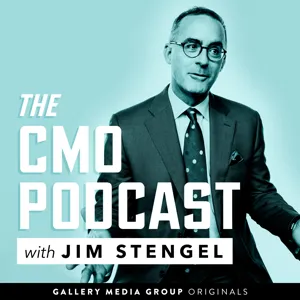Podcast Summary
Apple and other tech companies support right to repair laws: Companies like Apple are changing their stance on right to repair laws to provide consumers with repair manuals, components, and tools, enabling individuals to fix their own devices and reduce e-waste, while avoiding potential legal issues and maintaining consumer goodwill.
Apple and other electronics manufacturers are changing their stance on right to repair laws due to increasing pressure from consumers and governments. These laws require companies to provide repair manuals, components, and tools to consumers, enabling them to fix their own devices instead of relying on expensive company technicians or buying new replacements. Apple's recent support for California's right to repair bill is likely a response to the growing trend of such legislation, both in the US and the EU. By complying with these laws, companies can avoid potential legal issues and maintain consumer goodwill. This shift towards consumer empowerment in repair is a significant development in the tech industry, giving individuals more control over their electronic devices and reducing e-waste.
Apple's use of glue in iPhone repair: Apple's reliance on glue for iPhone repair makes it harder for consumers to fix their devices at home, potentially leading to increased use of professional services or replacement devices.
As smartphones become more advanced, they also become more difficult for consumers to repair at home due to the use of glue and the integration of multiple components into a single chip. Apple, for instance, requires specific tools and a glue melter to repair iPhones. The trend towards smaller and more powerful devices has led to the use of less space for components, resulting in an increased reliance on glue to hold things together. This makes repair more challenging and may lead to consumers relying on professional services or replacement devices. At Apple's upcoming event, it is expected that they will acknowledge the Right to Repair bill, signaling a potential shift in their stance on consumer repair.
Apple's approach to repairability and sustainability: Apple's push for repairability and sustainability may contrast with their business model, but it could help extend device life, reduce e-waste, and maintain competitiveness.
Apple is embracing the trend of repairability and sustainability in their devices, which aligns with consumer preferences and sustainability goals. However, this approach seems to contrast with Apple's business model rooted in selling new phones. Historically, smartphone sales have been declining, and Apple has been proactively expanding its services wing, including Apple Music, Apple TV, and iCloud, to anticipate the saturation of smartphone sales. The global e-waste issue is a serious concern, with projections estimating over 100 million tons generated each year by 2050. Repairable devices can help reduce e-waste by extending the life of devices and reducing the need for consumers to buy new phones frequently. Despite the potential conflict with their business model, Apple's move towards repairability and sustainability could help them maintain competitiveness and contribute positively to the environment.
Exploring resources to help kids understand complex concepts: Online communities like iFixit and podcasts like Million Bazillion offer resources for kids to learn about complex topics through repairing electronics and understanding concepts like unions and Fort Knox.
The world around us can be complex and confusing, especially for kids. But there are resources available to help answer their questions and make things clearer. For instance, the online community iFixit, which encourages people to teach each other how to repair their own electronics, was highlighted on a segment by KCRW in Los Angeles. CEO Kyle Wiens discussed how repairing electronics used to be simpler, but the trend towards cheap, disposable, yet complex devices began with the VCR. Meanwhile, the Million Bazillion podcast from Marketplace can help kids understand various complex concepts, such as unions and their role, or the purpose of Fort Knox and its gold. By providing answers to these questions, we can help our kids make sense of the world and develop a deeper understanding of how things work.





